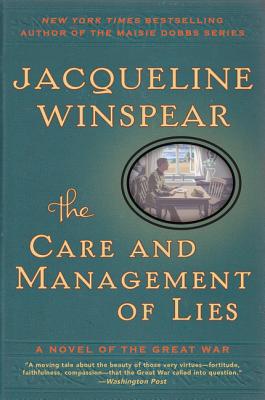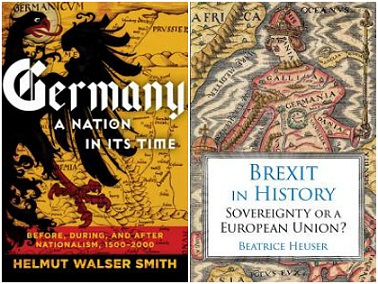The War That Didn’t End All Wars
- Darrell Delamaide
- September 19, 2024
(But did inspire a trove of Maisie Dobbs novels.)

It was supposed to be “the war to end all wars,” but of course it wasn’t. In fact, what contemporaries referred to as the Great War we now call World War I. It was a terrible ordeal: trench warfare at its most grim — complete with mustard gas and barbed wire — with military commanders sending a generation of young men to their deaths.
Jacqueline Winspear spares readers none of the gory details either in her early Maisie Dobbs books or in the standalone The Care and Management of Lies. (She says it was her grandfather’s accounts of WWI that inspired her.) The Dobbs series begins with the onset of the Great Depression and continues from there, but flashbacks in the inaugural installment, Maisie Dobbs, tell the harrowing story of the titular character’s service as a battlefield nurse in France and her passionate love for a doctor there, Simon Lynch.
It doesn’t end well for them. It emerges that Simon was badly injured in the war and lost all sense of who or where he was; he ends up in an asylum that Maisie often visits. The standalone novel also ends grimly, telling the story of two women who go their separate ways, one to take up the fight for suffrage in London, and the other to a happy marriage in rural England. The latter’s beloved husband enlists — even though, as a farmer, he doesn’t have to — and is killed shortly before he’s set to return home.
The books are filled with telling period details. The characters are independent women anachronistically out of step with their times. Maisie styles herself a “psychologist and investigator” because she apprenticed under Maurice Blanche, a physician to London’s poor, a former intelligence agent, and a sleuth. Maisie’s father is a widower who sold produce in London but transitioned to being a groom at a Kent estate. It belongs to Lady Rowan, a wealthy patron of Maisie’s who gave her a job, sponsored her entry into Cambridge, introduced her to Blanche, and helped her set up her business.
The mysteries are well crafted, but the war hangs over everything, at least in the standalone novel and the early Dobbs books. Peter Jackson, who filmed the “Lord of the Rings” saga, produced a documentary in 2018, “They Shall Not Grow Old,” which colorized previously unseen footage from the First World War on the theory that the period’s black-and-white newsreels don’t give the full impact of the suffering. There are numerous other movies about WWI, from Stanley Kubrick’s early black-and-white “Paths of Glory,” through three versions of “All Quiet on the Western Front,” to the 2019 hit from Sam Mendes, “1917.”
The war and the suffering it caused mark Europe still, and many blame the agreement that formally ended it — the Treaty of Versailles — for the rise of Adolf Hitler and the subsequent calamity of World War II. The European Union was born of that catastrophe and now faces a political and military crisis after years of peace under the protection of the United States.
Darrell Delamaide was a journalist in Europe for 21 years before settling in Washington, DC, where he continues to work as a writer and a journalist.

